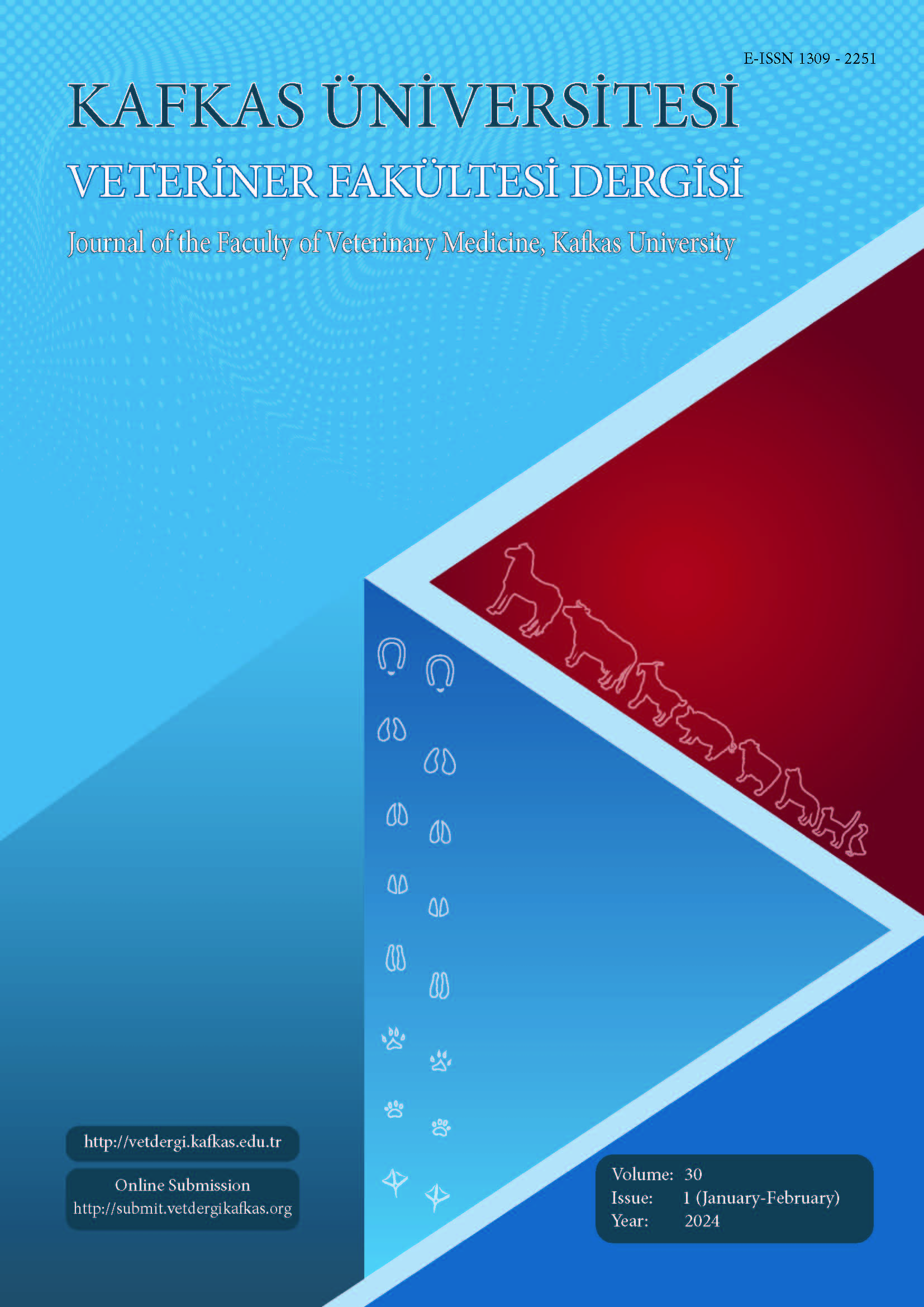
This journal is licensed under a Creative Commons Attribution-NonCommercial 4.0 International License
Kafkas Üniversitesi Veteriner Fakültesi Dergisi
2024 , Vol 30 , Issue 1
Anterior and Posterior Segment Parameters of the Eye in Eagle Owls (Bubo bubo)
1Kafkas University, Faculty of Veterinary Medicine, Department of Surgery, TR-36100 TR-36100 Kars - TÜRKİYE2Harran University, Faculty of Medicine, Department of Ophthalmology, TR-63050 Şanlıurfa - TÜRKİYE
3Kafkas University, Faculty of Veterinary Medicine, Animal Nutrition and Nutritional Diseases, TR-36100 Kars - TÜRKİYE
4Kafkas University, Faculty of Veterinary Medicine, Department of Wildlife and Ecology, TR-36100 Kars - TÜRKİYE
5Kafkas University, Faculty of Veterinary Medicine, Department of Histology-Embryology, TR-36100 Kars - TÜRKİYE DOI : 10.9775/kvfd.2023.30500 Ocular anatomy may differ between species. In study design, it was aimed to create reference values by evaluating the anatomical formations of adult eagle owls with healthy eyes. The study materials consisted of 12 healthy eyes of 6 owl eagle birds brought to our hospital for non-ocular problems. The anterior and posterior eye segments were evaluated with the biomicroscopic examination, Schirmer tear test, color fundus photography, orbital ultrasonography, optical biometry, and keratometry without anesthesia. Anterior chamber deep (ACD), horizontal visible iris diameter (HVID), pupil diameter (PD), and base curve were topographically measured. Axial globe length (AGL), central corneal thickness (CCT), and lens power (LP) were measured. The optic disc, tapetal, non-tapetal region, retina, and choroid were evaluated with fundoscopic examination. Intraocular pressure (IOP) values were also recorded as average values and standard error. ACD 3.21±0.01 mm, HVID 9.02±0.004 mm, PD 7.97±0.10 mm, AGL 31.108±0.1773 mm, CCT 207.83± 0.50 μm, LP 16.5 Dioptri, IOP 13.817±0.2 mmHg, horizontal corneal diameter (HCD) 13.57±0.09 mm, a vertical corneal diameter (VCD) 13.20± 0.14 mm and the mean of basic curve (BC) was found as 10.93±0.10 mm. In conclusion, it is thought that it will be possible to detect more easily pathological conditions of eagle owl birds brought to veterinary clinics with eye or vision problems with reference values presented in this study, and the data obtained from the study will contribute to clinical practice. Keywords : Eagle owl, Eye anatomy, Ocular examination, Bubo bubo










